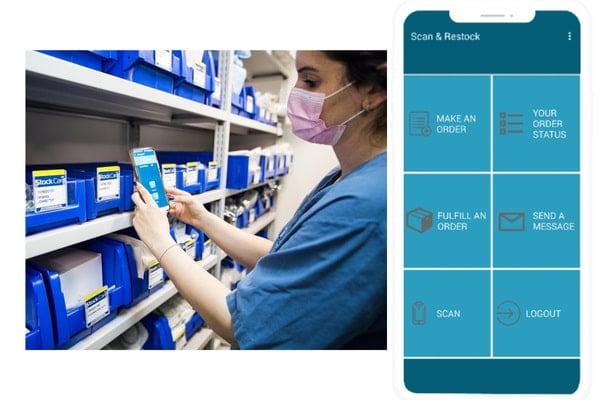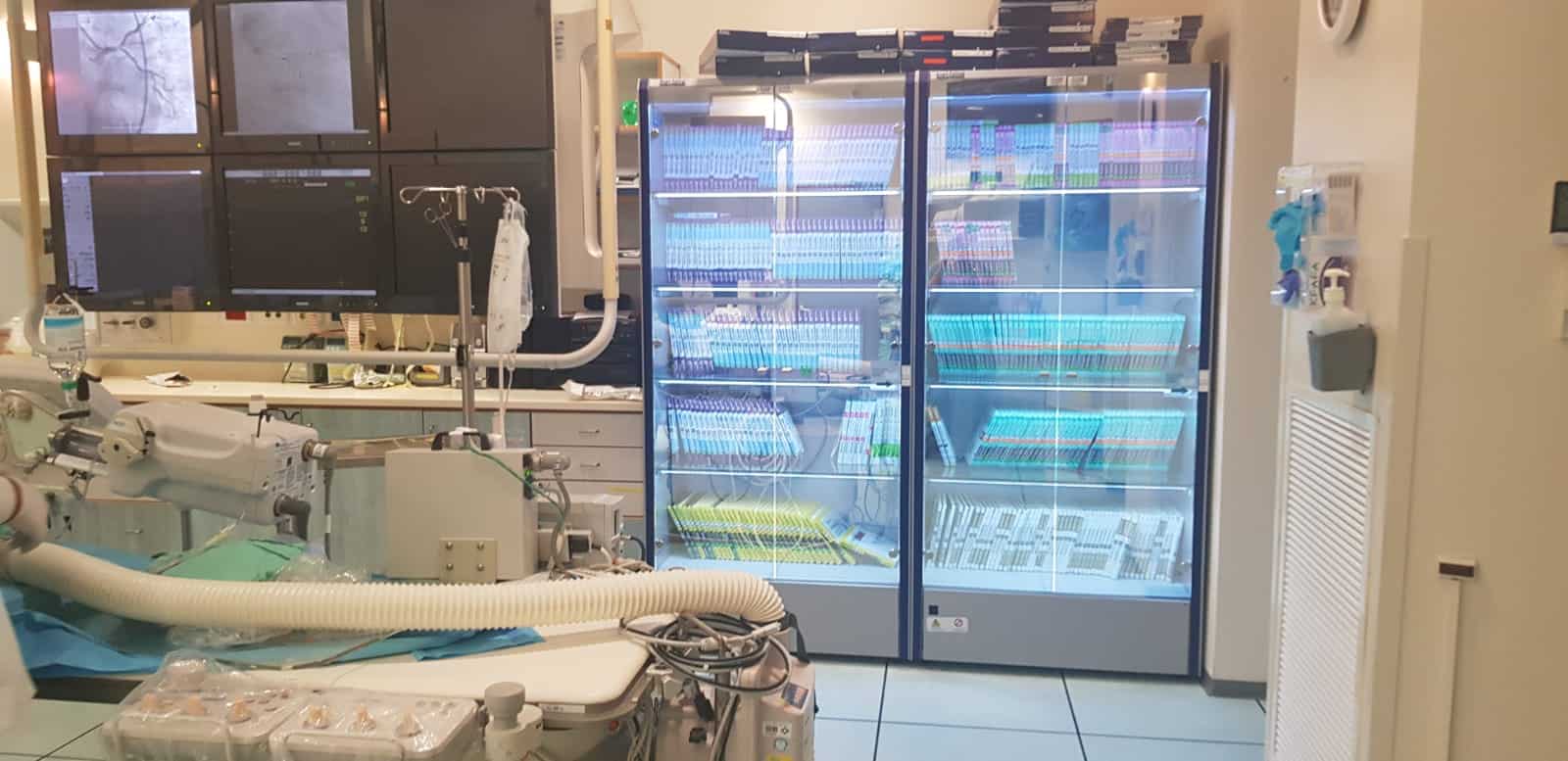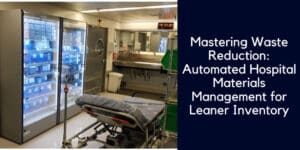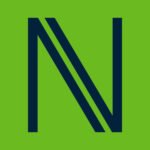What’s inside:
RAIN RFID technology is proving to be a powerful force in healthcare medical inventory management.
This article will look at:
- The elements of an RFID system
- UHF RFID in healthcare
- The benefits of RFID systems in hospital inventory management
- The relationship between RFID nad patient safety
- How RFID supports data analytics
What is RAIN RFID Technology?
Rain RFID (Radio-Frequency Identification) technology wirelessly connects everyday items to the internet. The word RAIN stands for ‘RAdio frequency IdentificatioN‘ and the acronym alludes to the cloud storage that is synonymous with its use. RAIN is an RFID Ultra-High-Frequency (UHF) technology.
Elements of an RFID System
There are five elements to a RAIN RFID system.
- Items – These are individual products
- RAIN UHF RFID Tags – Tags can be attached to or embedded in items. They are used to store product information
- RAIN UHF RFID Reader – This is a small box with an antenna that can be set up to cover a long or short range. This sensing technology reads the data embedded in the RFID tags
- RAIN UHF RFID Software Applications – collects the data received from readers
- Cloud Network/Server – for the storage, management, and sharing of data. Software that sits in the cloud or on a server can identify, locate and authenticate items
Each individual tag that is applied to an item contains a unique identifier and stores information about the product. The tagged items are stored in an RFID storage solution and the integrated reader then picks up signals from tags of stored items. The RFID reader communicates with management software, usually stored in the cloud. The managing software will therefore store a perpetually up to date picture of the contents of each RFID storage space. This information can then be accessed remotely, allowing users to track item movements, for example, within their supply chain.
So, RAIN RFID is an effective and efficient way to track data, providing a wireless connection between items and cloud storage. It is this collection and management of data that provides users with accuracy and control over their inventory.

RFID in healthcare
RAIN RFID is becoming increasingly popular and being used in many industries such as retail, manufacturing, and transport. It is also finding its way into consumer applications, including wearables and smart homes.
One area with wide application for RAIN RFID technology is the healthcare sector, due to the need for accurate item tracking. This type of technology can be used to improve and add visibility to logistics, by tracking medical supplies throughout their supply chain journey, right through to usage.
Not only is this useful for keeping track of inventory but it also adds a level of security that enables nursing staff to authenticate items before use. Gaining increased control of inventory allows hospitals and surgery centers to better manage their supply chain and helps assure top-quality patient care.
In the healthcare sector, RAIN RFID is central to many automated inventory management solutions. Hospitals and surgery centers can use RFID tags for inventory management and place products in smart RFID cabinets, to help them to keep track of their inventory more accurately than ever before – with up to 99.9% accuracy for tracking items of all sizes. Additionally, Rain RFID provides healthcare organizations with the ability to instantly access data about their medical inventory, allowing them to make more informed decisions and react quickly to seasonal changes and other events.
Rain RFID technology is revolutionizing the way healthcare providers track and monitor their inventory, as well as improving patient safety.
How RFID inventory control is streamlining workflows
RAIN RFID technology is making it easier to automate workflows and streamline processes. By providing an efficient way of tracking items, RAIN RFID is enabling users to identify the real-time location of items and track their movements within the supply chain. This allows for better control over inventory, improved accuracy when logging stock levels, and increased visibility over the entire system. In the past this process relied on the transfer of information between vendors, distribution centers and hospitals and a lot of manual checking and counting.
RAIN RFID inventory management systems are being used to create a more efficient workflow management process and to reduce costs. By automating manual processes, hospitals can reduce labor-intensive tasks such as stock counts, expiry checks, and the regular hunt for missing supplies that every nurse has experienced. The time and effort removed from these daily tasks releases staff to focus on other elements of their job, improving performance. Some organizations also find that RFID automation in healthcare can even reduce workforce costs by enabling the efficient oversight of materials management with fewer staff.
UHF RFID frequency technology is revolutionizing the way healthcare organizations operate and allowing them to better manage their inventory and gain greater control of their supply chain, which can have a positive impact on the team, performance and profits.

Integrating RFID data into hospital supply chain systems
Integrating RFID data into hospital systems is becoming increasingly important to healthcare organizations, giving them full and accurate information on inventory and utilization which can lead to decreased operational costs and improved patient safety.
It is RAIN RFID that captures the information, but it is the software that manages and shares the data. The RFID management system needs to be able to seamlessly integrate with hospital systems and share vital data with the hospital’s ERP, EMR and MMIS systems. Once this data is transferred to the hospital system it serves as the source of:
- Informed inventory management, that is based on facts, not guesswork
- Complete and accurate medical records
- Full, timely billing, leading to optimized reimbursement.
An extra dimension that is now possible with RFID technology and healthcare inventory management software, is the joint access that can be shared by both vendors and hospitals. This shared vision and transparency builds trust and understanding between both parties and enables full agreement on stock. This prevents the common disagreements that occur between hospitals and suppliers on wastage and usage figures, when both parties have a different view of reality. Joint vision prevents this, as both now have a common understanding.
The healthcare industry is rapidly changing, and RFID technology can help medical professionals keep up with the ever-evolving demands for safety, efficiency and profitability. By integrating RFID technology and management solutions into hospital systems, healthcare providers can gain greater security, visibility, and control over their inventory and ensure that their revenue is maximized.
The role of RAIN RFID in healthcare cost reduction
RFID technology can be used to reduce the costs associated with traditional inventory management processes. By integrating RFID into hospital systems, medical organizations can streamline their supply chain and control costs by increasing the accuracy and visibility of their stock levels. This ensures that hospitals have enough items on hand when needed, and do not spend money on unnecessary products or waste money on items that expire before usage.
By using RFID to automate manual processes, healthcare organizations can reduce labor costs and increase the efficiency of their workflows. It can even help to retain staff, as a heavy admin workload is known to result in low nurse morale.
Another cost-cutting area is that of wastage. RFID inventory tracking solutions monitor and report on expired and recalled products. This valuable and timely data will ensure that soonest-to-expire items are prioritized for earliest usage. This prevents the need for time-consuming stock checking by nursing staff who are responsible for stock items behind the ‘red line’ and also cuts out the costs of unnecessary wastage. These reports will also alert staff to expired or recalled items so that they can be removed from stock. When expired and recalled items are mistakenly left on the shelf, they can result in potentially devasting ‘never events’ that risk bad publicity and costly litigation.
The combination of simpler workflows, a streamlined inventory, and reduced wastage can result in significant cost savings, while at the same time boosting performance.
RAIN RFID data analytics
Rain RFID is ushering in a new era of accuracy and automation in the healthcare industry. By empowering medical professionals with better data, Rain RFID is improving health outcomes for patients and providing a more efficient way of managing inventory.
RFID technology can be used to integrate real-time data from multiple sources within the hospital such as medical devices, tracking tags, and scanners. This data can then be analyzed to provide a comprehensive overview of the supply chain process which can help hospitals better manage their inventory.

Examples of RFID data reports include:
- Inventory turns
- Average days to restock
- Restock frequency
- Zero turn items
This is crucial data that will help the materials management team to get the frequency and volume of restocks right, enabling them to create timely and accurate restocks based on precise usage data.
When tracking was carried out manually or with inefficient technology, hospitals and surgery centers were using incomplete and often incorrect data to base important and costly decisions on.
The implementation of RFID technology in hospitals has been the game-changer the industry needed. The combination of RFID data, automation, and analytics are key components of a more efficient healthcare system.
RAIN RFID for automated supplies replenishment and medical billing
Rain RFID data is shared with hospital systems and is then being used to add accuracy and automation to internal processes such as medical supplies replenishment and billing.
Automated supplies replenishment using RFID
By integrating RFID data into hospital systems, healthcare providers can gain increased visibility over their inventory and ensure accurate tracking of products throughout the supply chain.
This technology also allows for automated orders when stock levels get low, reducing the need for manual processes, and enabling hospitals to be more efficient.
Overall, Rain RFID provides hospitals with an improved way to manage their supply chain processes. By automating replenishment healthcare providers can ensure accurate and timely restocks that maintain a reduced, balanced inventory.

Automated medical billing using RFID technology
RFID also provides data that can be used for accurate medical billing, ensuring that medical professionals are able to capture the full range of items used in surgery and that the billing process is able to reflect this. RFID automation of the data capture and billing processes ensures full charting and complete medical billing that results in optimum reimbursement. By automating billing, healthcare providers can reduce operational costs while providing a better service to clinical departments and supporting improved financial performance.
RFID inventory systems drive up efficiency and remove the data gaps that lose hospitals income.
Patient safety is boosted by RFID tools
RFID inventory tracking is becoming increasingly popular for organizations looking to improve efficiency and accuracy, as well as increase patient safety.
FDA UDI regulations require healthcare organizations to fully track certain medical devices and implants. The UDI requirements have led to many hospitals and ambulatory surgery centers embracing RFID technology so that they can meet these regulatory standards. Many healthcare providers are using systems such as GS1 in healthcare for implant tracking and have embraced the use of RFID high frequency cabinets and other automated medical supplies inventory management systems.
RFID is a great way to improve patient safety by achieving better visibility and control of medical supplies and being able to track these from manufacture through to consumption.
RFID is bolstering patient safety by:
- Full inventory being available when needed
- Pre-consumption safety checks for expiry and recall
- Robust recall management due to accurate records
- Full compliance with FDA UDI regulations

RAIN RFID in healthcare inventory management
RAIN RFID solutions have improved supply chain processes and are fast becoming the industry standard. By leveraging the power of RAIN RFID technology, businesses can benefit greatly from improved data accuracy and cost-savings. With the right RFID solutionS, you can empower your business with accuracy, visibility and control.
Examples of RFID solutions are:
- RFID Cabinets for precise tracking of medical devices and implants
- Automated Kanban = RFID medical supplies management using RFID tags and a mobile reader – for accurate, automated stock management of bulk supplies.
Contact us today to find out more about how we can help you take your supply chain processes to the next level. We offer a range of RFID inventory management solutions, specially designed for clinician use in the surgical environment, helping nurses to locate, authenticate and track medical devices and implants as well as supporting materials management to gain complete control of their bulk medical supplies.
IDENTI Medical is a member of the RAIN Alliance that drives awareness and fosters market adoption of RAIN technology.






